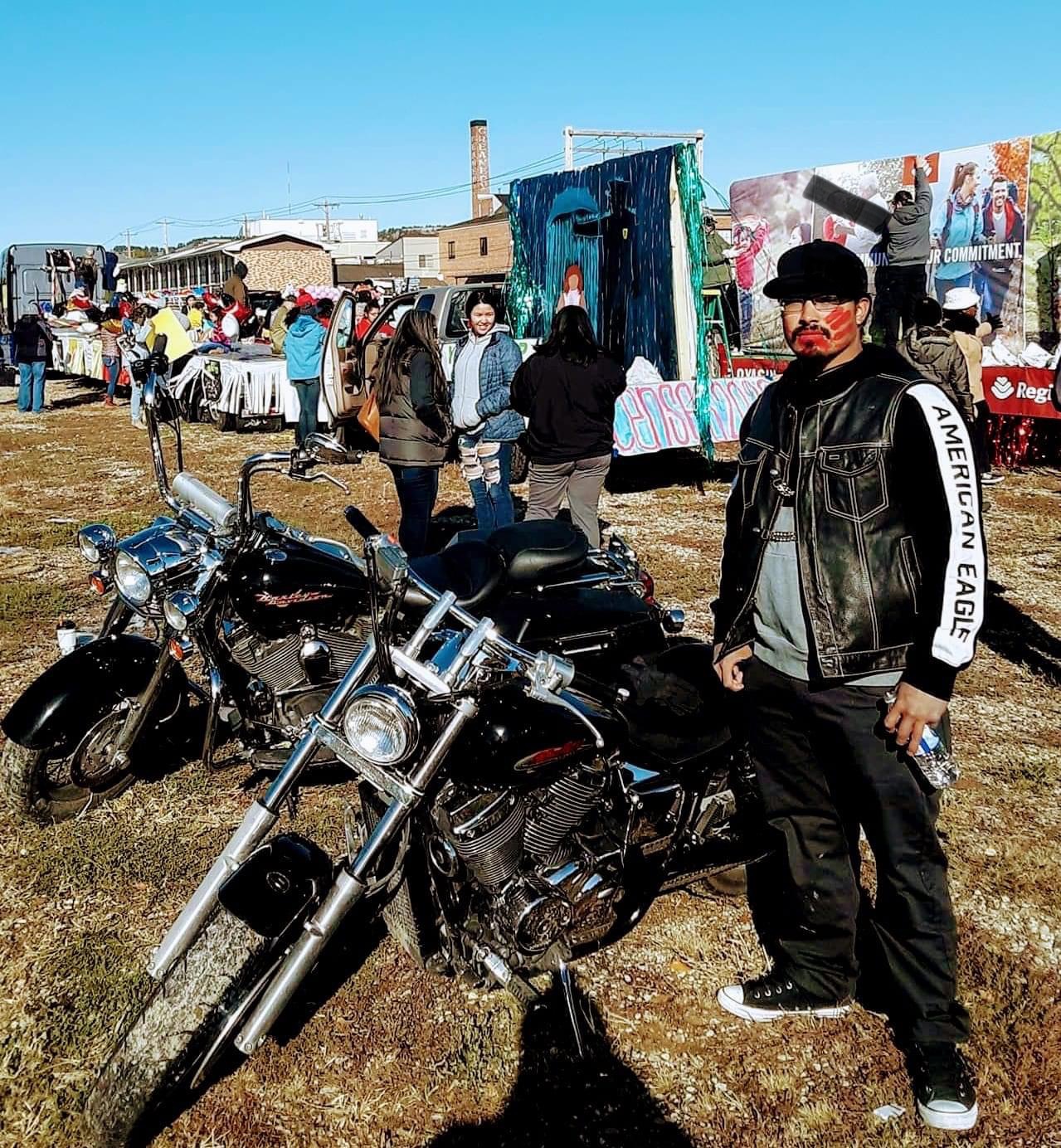
John Hult, South Dakota Searchlight
A man whose photograph was used by Gov. Kristi Noem as alleged proof of rampant drug cartel activity on tribal lands has been sentenced to eight years in federal prison for conspiring to distribute methamphetamine in Rapid City, but prosecutors said the case was not connected to cartels.
Charles Cain Merrival, 32, has spent most of the past four years in the Pennington County Jail in Rapid City, awaiting trial on federal drug conspiracy and firearms charges and a state-level robbery charge.
Merrival’s photo was shown to reporters at a spring news conference in Pierre, at which Gov. Kristi Noem doubled down on earlier comments about the prevalence and influence of Mexican drug cartels on South Dakota’s reservations.
His name was not shown in the photo, but Noem showed it and a handful of other photos showing men who appeared to be Native American, wearing leather biker jackets, as the governor referenced drug activity on reservations. Merrival’s face was the clearest of any of the men who appeared in the photos.
Merrival is a member of the Oglala Sioux Tribe, but was living in Rapid City when the criminal activity occurred. When contacted at the Pennington County Jail, Merrival said he hadn’t been to the reservation for years and that the photo Noem used was snapped inside a shopping mall in Rapid City.
Shortly after the election of Donald Trump to a second presidential term last month, Noem was announced as Trump’s choice to direct the Department of Homeland Security. That position would put her in charge of the U.S. southern border, across which most of the illicit methamphetamine and fentanyl flow.
Noem’s comments on drug cartel influence – which contributed to votes by leadership in all nine South Dakota tribal governments to ban her from their lands – pointed the finger at drugs brought to the U.S. by people crossing the border illegally.
Merrival told Searchlight that Noem’s use of his image to make those points hindered his right to a fair trial by unfairly painting him with the broad brush of drug cartels – international crime syndicates to which Merrival insists he has no ties.
“Kristi Noem herself falsely labeled me a gang member that is affiliated with Mexican drug cartels and the commission of murders,” Merrival said in a phone interview last spring. “Because of Kristi Noem’s decision to personally intervene, any presumption of innocence that I had is gone forever.”
Merrival took a plea deal over the summer and admitted guilt for conspiring to distribute methamphetamine in exchange for a cap of eight years in prison.
A press release on his sentencing from U.S. Attorney Alison Ramsdell said Merrival was involved in the conspiracy from July of 2021 through January of 2022, the month he was arrested after officers watched him pass a backpack containing methamphetamine and weapons to a co-conspirator. A search of Merrival turned up additional ammunition, the release said.
“During the investigation, multiple sources confirmed Merrival’s history of violence and firearm possession. Merrival is prohibited from possessing firearms due to previous felony convictions,” the release said.
The U.S. Attorney’s Office press release also noted that Merrival had served as sergeant-at-arms for the Ghost Dance Motorcycle Club, a support group for the Bandidos. Merrival told Searchlight over the summer that the Ghost Dance group ceased to exist as a club in mid-2021. Merrival was released from the Pennington County Jail around that time after spending more than a year there awaiting trial on state-level robbery charges. He also has pending state cases for drug possession and harassing phone calls, the latter of which came during his time in jail. He returned to the Pennington County Jail in early 2022 and remained there until his sentencing late last month.
Shortly after his sentencing hearing, Merrival sent a text to South Dakota Searchlight saying the subject of the governor’s cartel allegations came up at his sentencing. He did not respond to a follow-up text.
Ace Crawford, spokeswoman for the U.S. Attorney’s Office, confirmed that the topic was broached at the sentencing and addressed by an assistant U.S. attorney (AUSA) in the courtroom.
“In response to a question by Judge Schreier, our AUSA did confirm in open court that Merrival’s case was not connected to Mexican drug cartels,” Crawford said via email.
